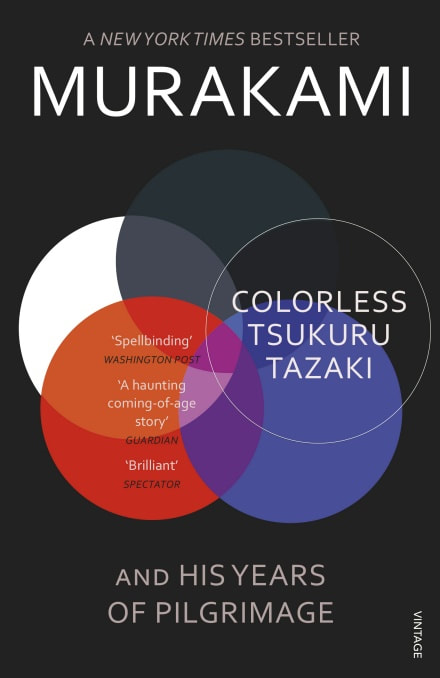It’s a clever and engaging setup, and as the mystery unravels you want to know more and more of what’s going on. In the first half of the book, we are introduced to Tsukuru Tazaki and spend time getting to understand him, his experiences in school, and what they meant to him. In the second half of the book, Tsukuru meets each of his old friends in turn, and everything we’ve learnt up to that point becomes important. It’s a simple structure, but it works because of how universal Tsukuru’s story is.
If there’s a criticism, it’s that Tsukuru’s friends aren’t as fleshed out as they could be. The book isn’t long, and it wouldn’t have hurt to get to know them more as individuals, as opposed to how they relate to Tsukuru. As it is, the book feels a little thin without that strong foundation of characterisation. However, it’s easy to see why this wasn’t the case, since there are four of them, and it could easily have made the book too long. The main thing is that we get to know Tsukuru well enough for the story to have the impact it needs.
Whenever I read a work in translation, I wish I spoke the original language. While the events of the story are generally clear, you do get the feeling you’re missing out on something. However, the power of literature is that it enables communication across boundaries, and it’s miraculous that I’m able to understand what Murakami was trying to get across despite not speaking a word of Japanese. Colorless Tsukuru Tazaki and His Years of Pilgrimage is a deeply moving book, relatable to anyone who’s had difficulties with a group of friends, which is a heartbreaking thing to experience. It may not be Murakami’s best book, but it’s one that only he could have written.
Review by Charlie Alcock

 RSS Feed
RSS Feed
